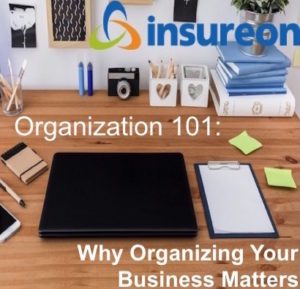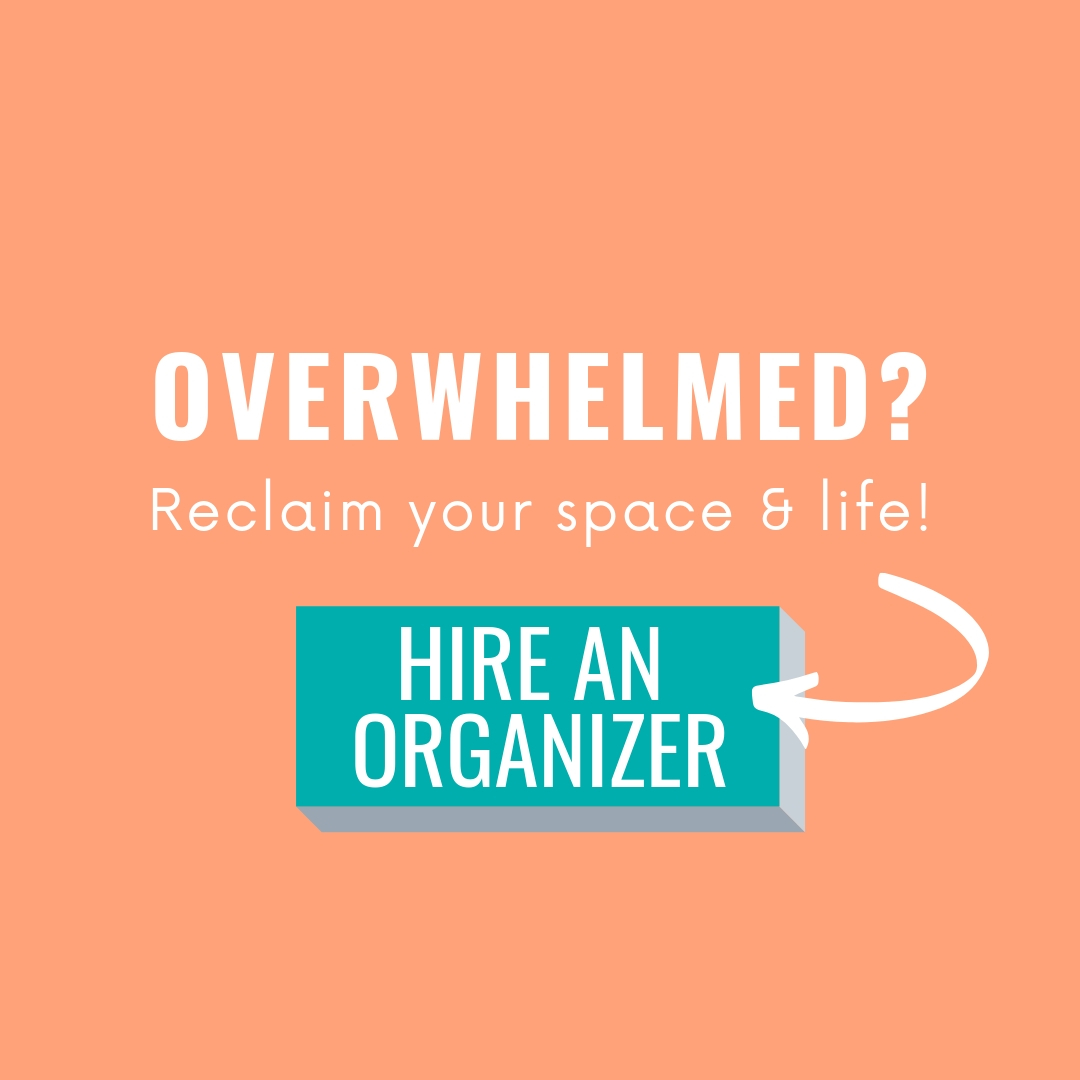[Vicki Norris guest authored this article which originally published on Insureon’s blog.]

Organizing your business’s work space may not be high on the priority list, but it should be. Getting organized can…
- Increase your productivity.
- Ramp up your revenue.
- Cut down on your risks.
But don’t just take our word for it. We asked two professional organizers why organization is so important for small businesses and how they can stay organized for the long haul. Here’s what they had to say.
-
Organization is the key to productivity.
If you look at your office and see chaos, that disarray is probably keeping you from being productive.
Vicki Norris (@RestoringOrder), president of professional organizing services company Restoring Order, author, and speaker, says, “Disorganized individuals take longer to complete work.” Loose contact files and business cards are missed leads and lost revenue if information isn’t managed and queued.
Pro tip: Evaluate what it’s costing you to be disorganized. “If you’re losing out on leads, opportunities, income, and quality of life, take stock of that human and financial cost,” Norris says. That perspective will help you make organization part of your business life.
-
Organization isn’t about aesthetics – it’s about function.
Julie Bestry (@ProfOrganizer), certified professional organizer and president of Best Results Organizing, says from her experience, people often make the mistake of thinking about organization in terms of how things look.
“Aesthetics are more of a luxury than functionality,” Bestry says. “In other words: function beats form!”
Pro tip: Put your stuff in an accessible place. “If you have to jump through hoops and leap over storage tubs to get to your scanner or filing cabinet, you’re going to avoid digitizing documents or filing forms,” Bestry notes.
-
Organization is a state of mind.
You can’t expect to overturn years of bad organizational habits in a day (more on that in “5 Habits to Ditch to Improve Organization & Cut Your Stress“). If you’re serious about changing the status quo for your business, Norris suggests using detective work to resolve the roots of a messy business.
For instance, maybe your strewn business cards are a result of not having a system to catalog new contacts. “After returning from a networking event, note how you met each contact, determine how to get the data into your CRM, and determine how to best serve those new relationships,” Norris says.
Pro tip: Give yourself time to get organized. Norris suggests allocating at least 24 to 28 hours to the initial process. “There are 8760 hours in a year, so you can afford to invest this time in your business,” she notes.
-
Organization makes multitasking unnecessary.
Bestry stresses the importance of organizing your time. Doing so allows you to:
- Focus on your goals.
- Gain perspective on your priorities.
If you know what task you need to focus on, you’re less likely to waste it on mindless Internet surfing or trying to do two tasks at once.
“Studies from the Journal of Experimental Psychology report multitasking wastes time and leads to distraction, errors, and memory lapses,” Bestry says. “You think you’re doing double-duty, but your brain is actually jumping back and forth and doing each thing less efficiently and less effectively.”
Pro tip: Block out your time. Bestry suggests grouping similar tasks together. For example, you might use the first part of your Mondays to respond to emails, call clients back, and sort out other customer service issues.
-
Organization isn’t always about the overhaul, but sometimes it’s essential.
Both our experts said sometimes a blank slate is necessary to get organization underway. “Sometimes it’s easiest to remove everything from a work station if your problem is a combination of paper and ineffective furniture and storage,” Norris says.
Bestry agrees that keeping too much of anything in your work space is a bad plan. Paring back to just the essentials on your desk can help you stay focused on the work in front of you.
Pro tip: Don’t be afraid to clear your desk. It will help you recognize what you actually need in front of you and force you to put away things that don’t need to be immediately handled.
Bestry recommends you think of your desk as your “prime real estate.” Anything you use at least every day should be within easy reach.
Remember, keeping your office organized is a form of risk management. A neat space and functional sorting systems ensure you don’t lose track of important documents and bills. In turn, you are better able to serve your clients and cut down on work mistakes that can lead to lawsuits.

 Visit the Insureon blog to see the original: http://www.insureon.com/blog/post/2016/01/13/organization-101-why-organizing-your-business-matters.aspx
Visit the Insureon blog to see the original: http://www.insureon.com/blog/post/2016/01/13/organization-101-why-organizing-your-business-matters.aspx
See the PDF here: Insureon Organization 101 – Why Organizing Your Business Matters 1.13.16
Related
- Visit our Reclaim Your Work page
- Learn more about our Reclaim Your Work consulting services
- Find inspiration and ideas on our Reclaim Your Work Pinterest board
- Read how Vicki’s workplace trainings could benefit your business
- Check out our DIY training videos to Reclaim Your Paper


